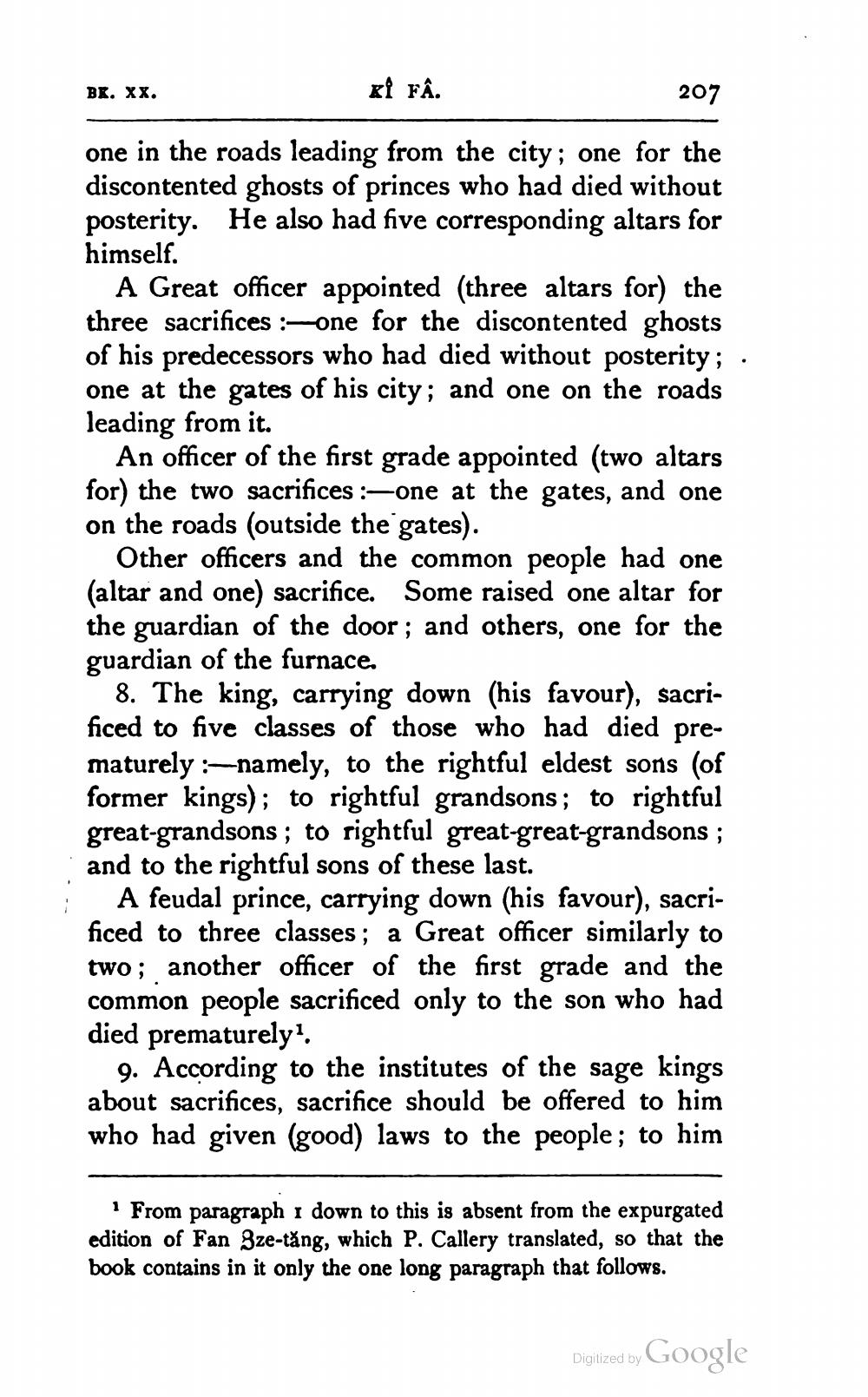________________
BK. XX.
Ki FÂ.
207
one in the roads leading from the city; one for the discontented ghosts of princes who had died without posterity. He also had five corresponding altars for himself.
A Great officer appointed (three altars for) the three sacrifices :-one for the discontented ghosts of his predecessors who had died without posterity; . one at the gates of his city; and one on the roads leading from it.
An officer of the first grade appointed (two altars for) the two sacrifices :-one at the gates, and one on the roads (outside the gates).
Other officers and the common people had one (altar and one) sacrifice. Some raised one altar for the guardian of the door; and others, one for the guardian of the furnace.
8. The king, carrying down (his favour), sacrificed to five classes of those who had died prematurely :-namely, to the rightful eldest sons (of former kings); to rightful grandsons; to rightful great-grandsons; to rightful great-great-grandsons ; and to the rightful sons of these last.
A feudal prince, carrying down (his favour), sacrificed to three classes; a Great officer similarly to two; another officer of the first grade and the common people sacrificed only to the son who had died prematurely?.
9. According to the institutes of the sage kings about sacrifices, sacrifice should be offered to him who had given (good) laws to the people; to him
From paragraph 1 down to this is absent from the expurgated edition of Fan Sze-tăng, which P. Callery translated, so that the book contains in it only the one long paragraph that follows.
Digitized by Google




